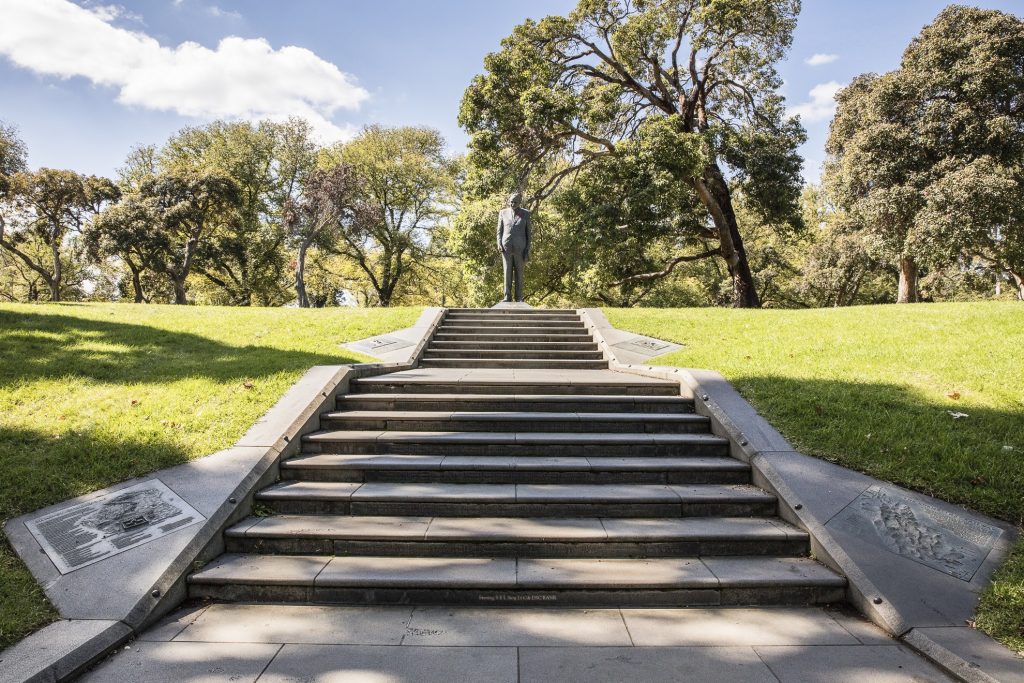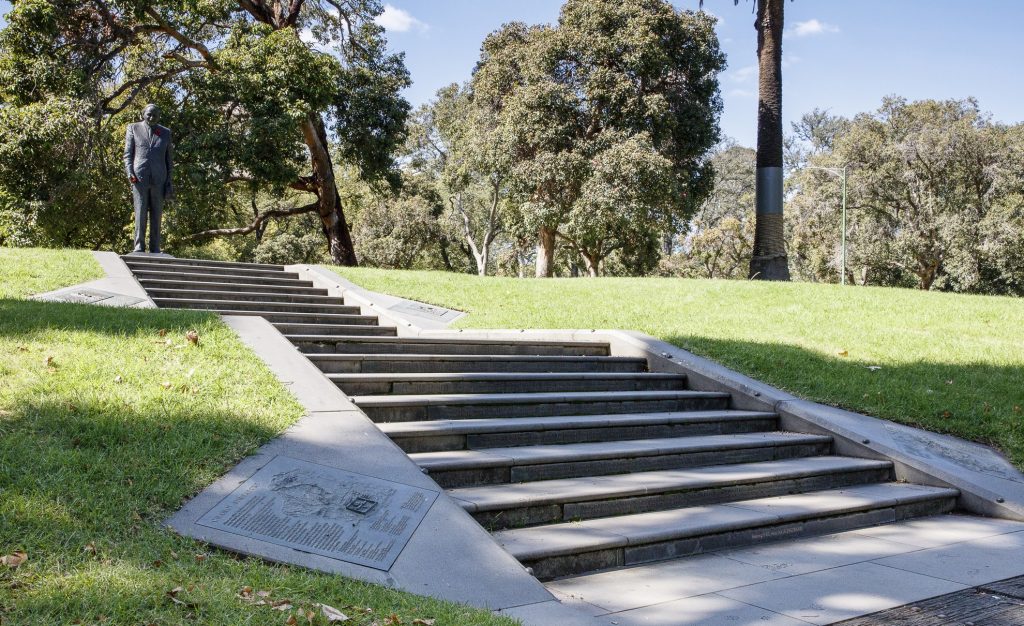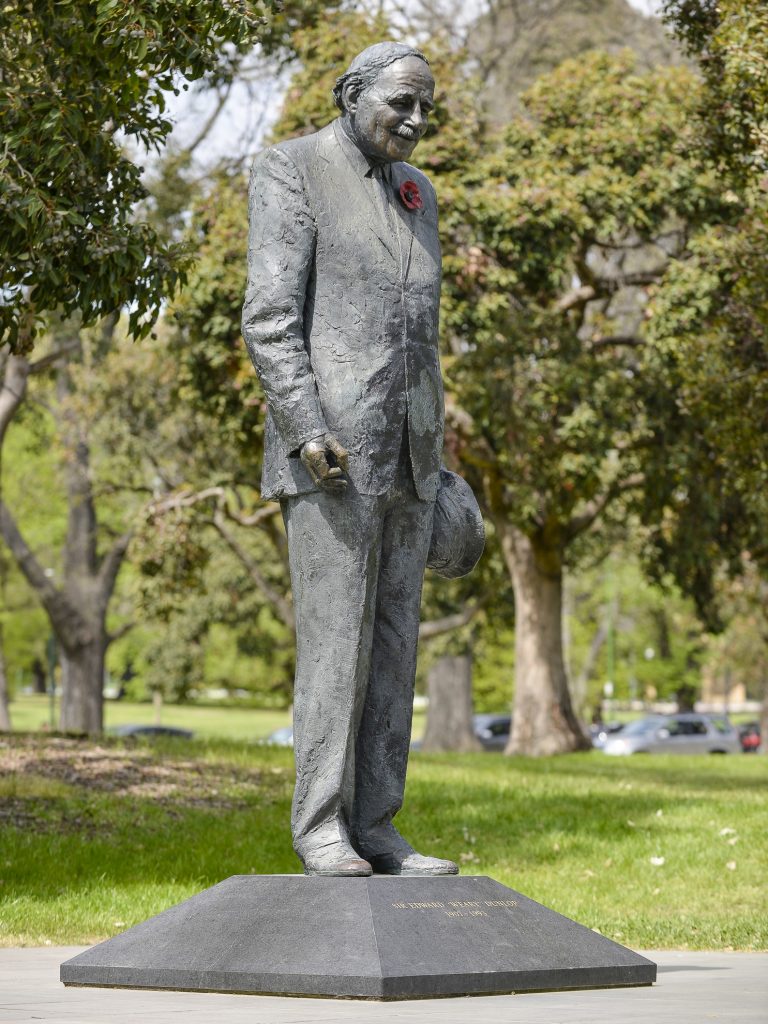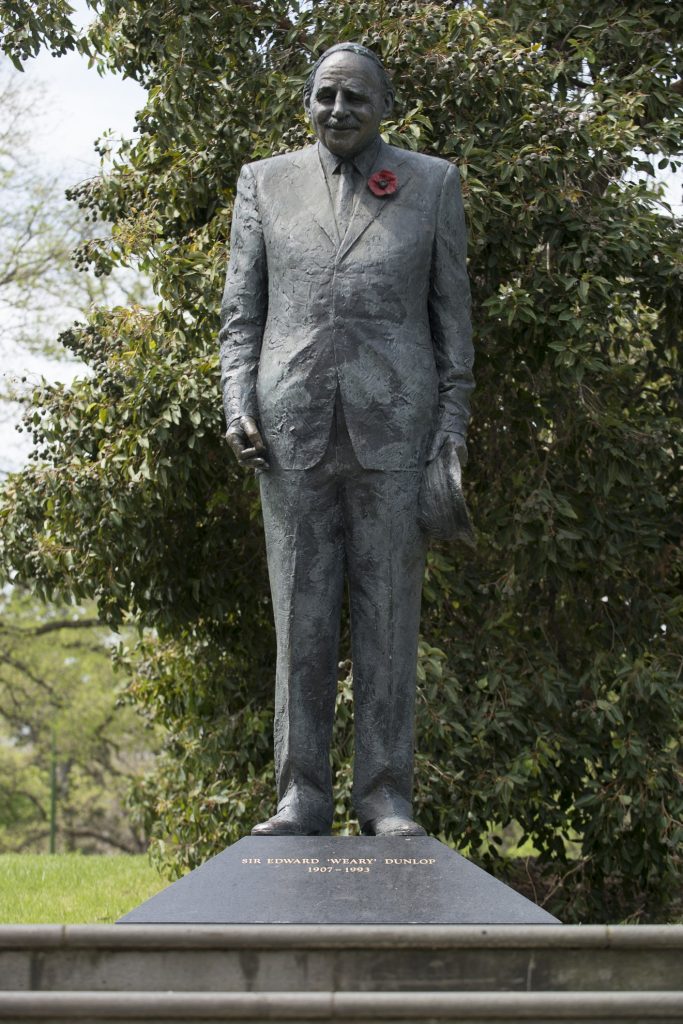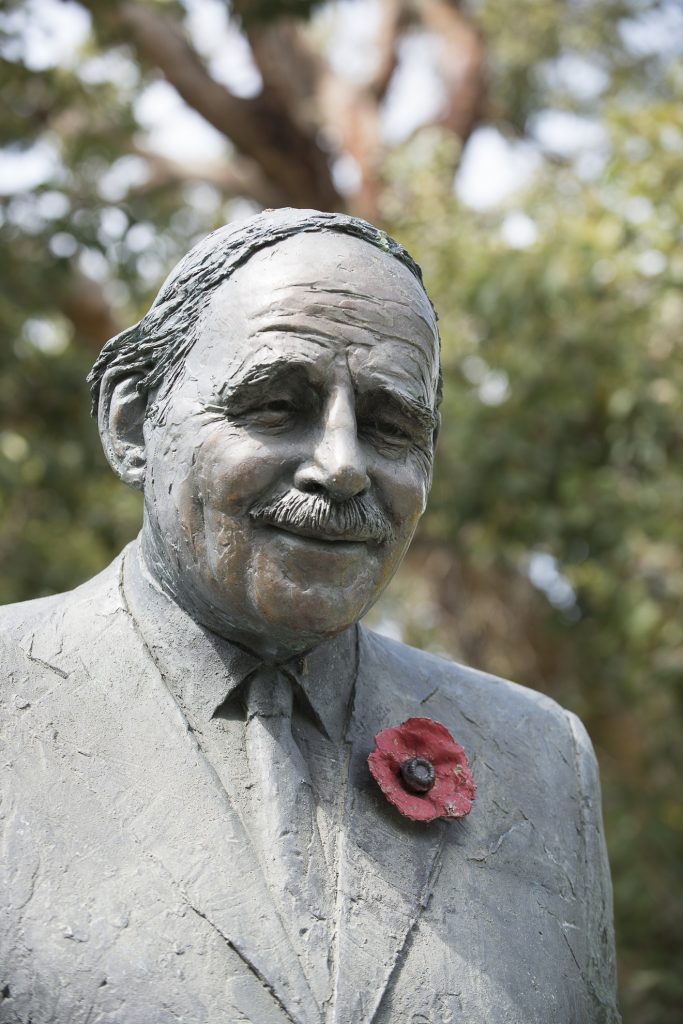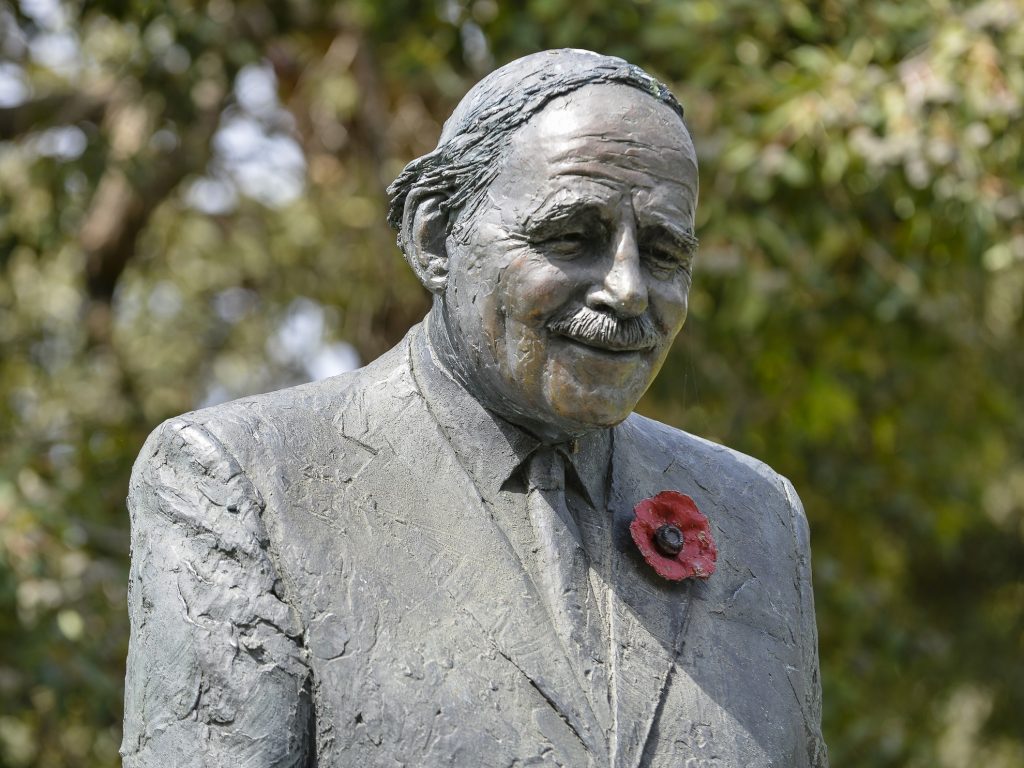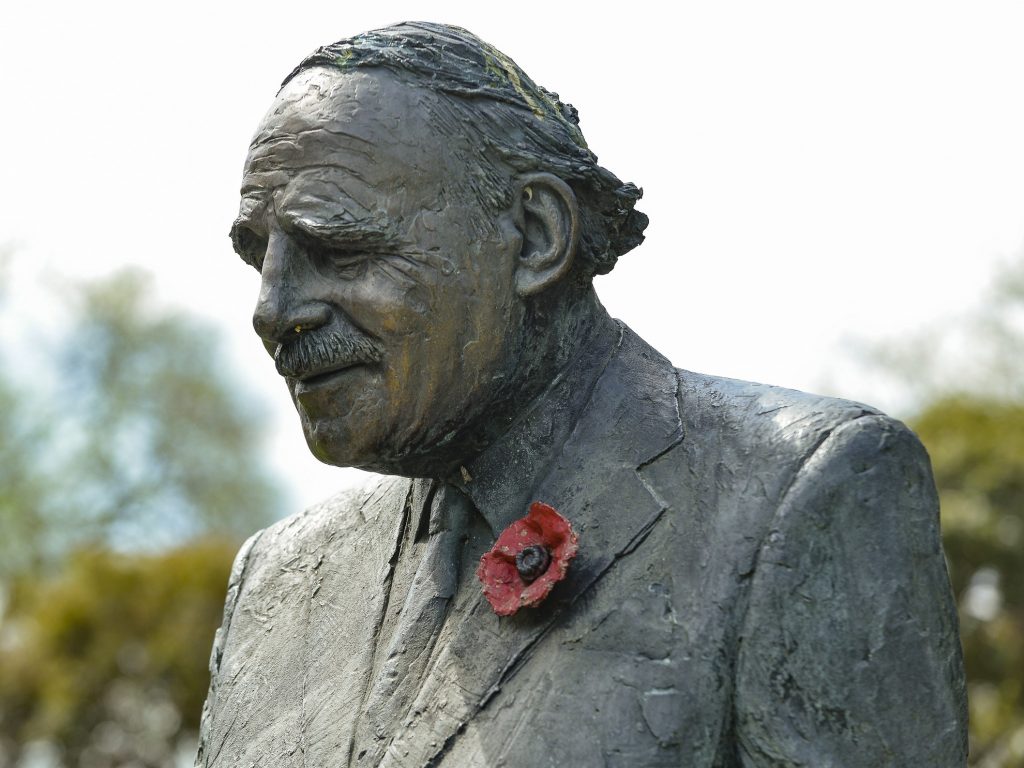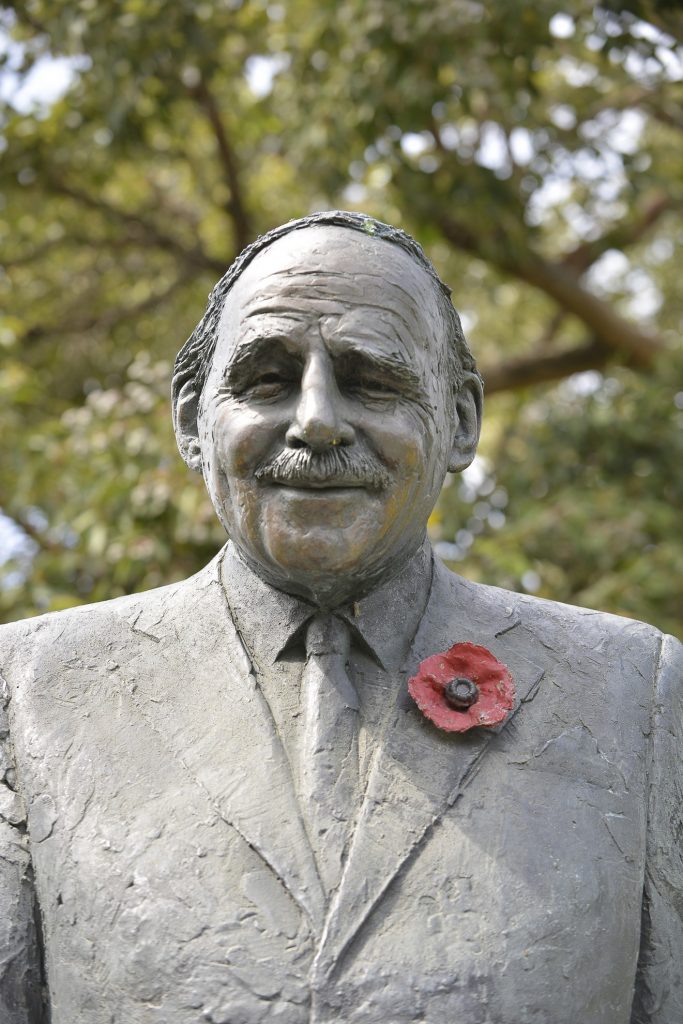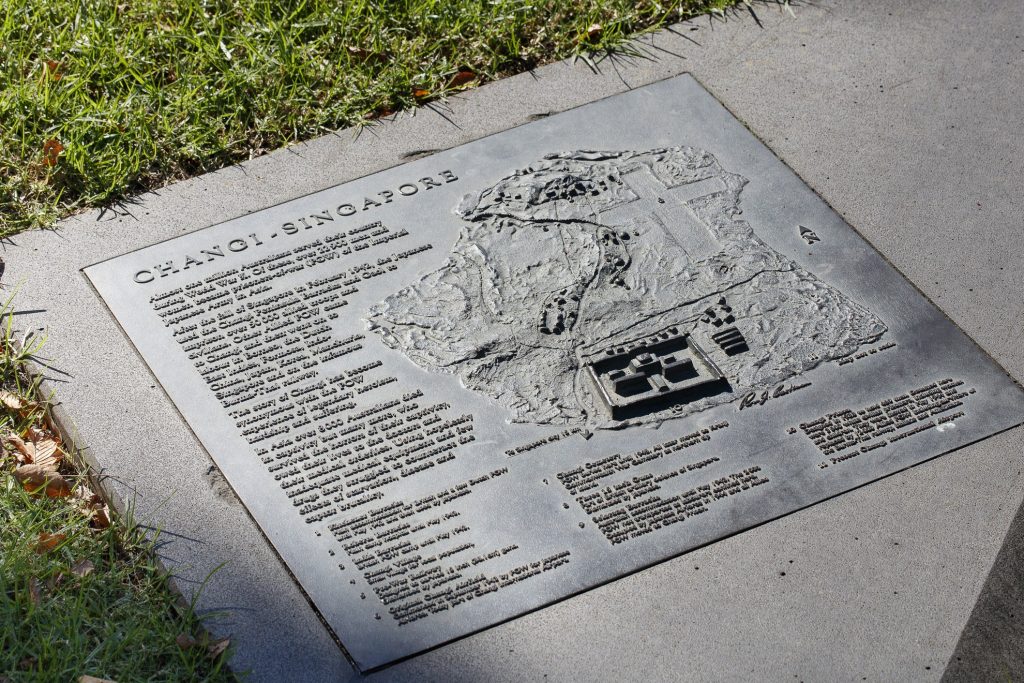Sir Edward ‘Weary’ Dunlop 1995
CORLETT, Peter
Registration number
1088238
Artist/maker
CORLETT, Peter
Title
Sir Edward ‘Weary’ Dunlop
Production date
1995
Medium
bronze, granite
Dimensions (H x W x D)
260 x 80.3 x 50.5 cm
Credit line
City of Melbourne Art and Heritage Collection
Keywords
Summary
Location: St Kilda Rd, Kings Domain
Large, bronze statue of 'Weary' Dunlop is fixed to a granite pedestal. The statue stands above stairs constructed from ironbark railway sleepers and stone. Metal spikes from the Burma Thailand railway are used in the sculpture. On the steps leading to the sculpture are the names of other doctors and medical staff who also cared for POWs.
Following Dunlop’s death in 1993, funds were raised through the Weary Dunlop Statue Appeal. The then Victorian premier, Jeff Kennett, unveiled Peter Corlett’s memorial to Weary Dunlop on 15 August 1995. There is a second Weary Dunlop statue located at the Australian War Memorial, Canberra.
Weary Dunlop trained in Melbourne as a pharmacist before he turned to medicine. He then undertook surgical training in London, where he remained until the outbreak of World War Two. Dunlop joined the Medical Corps of the Australian Army. A surgeon of considerable skill, he served in a senior position in the Middle East and was then transferred to Java. In 1942, his company was captured by Japanese troops and imprisoned first in Singapore and then in Changi, Thailand. His company was sent to work on the Thai segment of the infamous Burma–Thailand railway. A natural organiser and leader, in 1943, Dunlop led Australian prisoners of war working on the line. He was a courageous leader and compassionate doctor, and restored morale in those terrible prison camps and jungle hospitals. He defied his captors, gave hope to the sick and eased the anguish of the dying.
After 1945 and with the war behind him, Dunlop turned his energies to healing and to building bridges; he worked towards the health and welfare of former prisoners of war and their families, and towards promoting better relations between Australia and Asia.
Born in Melbourne in 1944, Peter Corlett studied sculpture at RMIT. He has created several commemorative sculptures, including the Australian War Memorial’s Simpson and His Donkey. Winning the commission for a memorial to Edward ‘Weary’ Dunlop, Corlett produced a work that not only commemorated this extraordinary man but paid homage to all medical staff serving prisoners of war in Asia–Pacific during World War Two. The sculpture includes metal spikes that were used in the Burma–Thailand railway.
